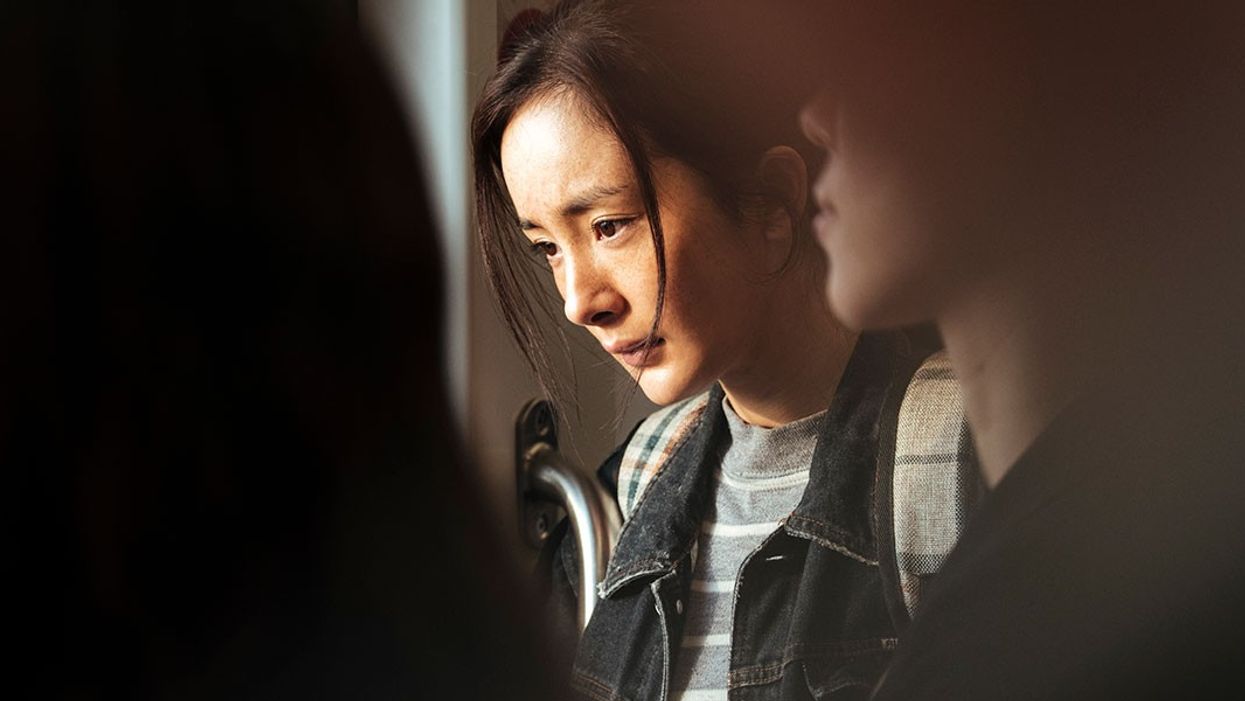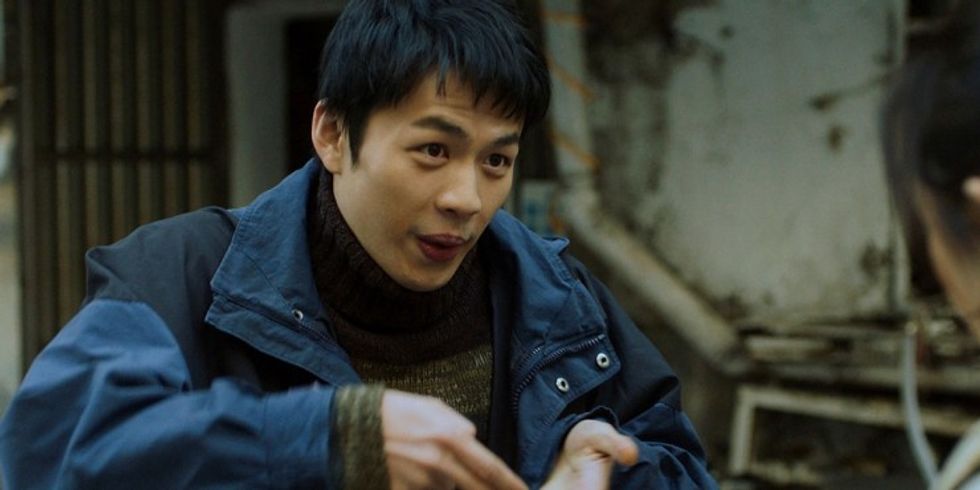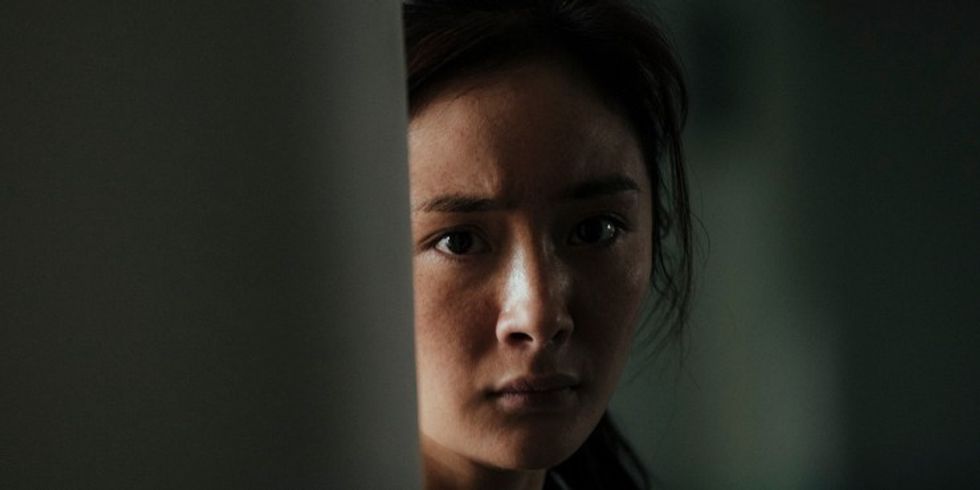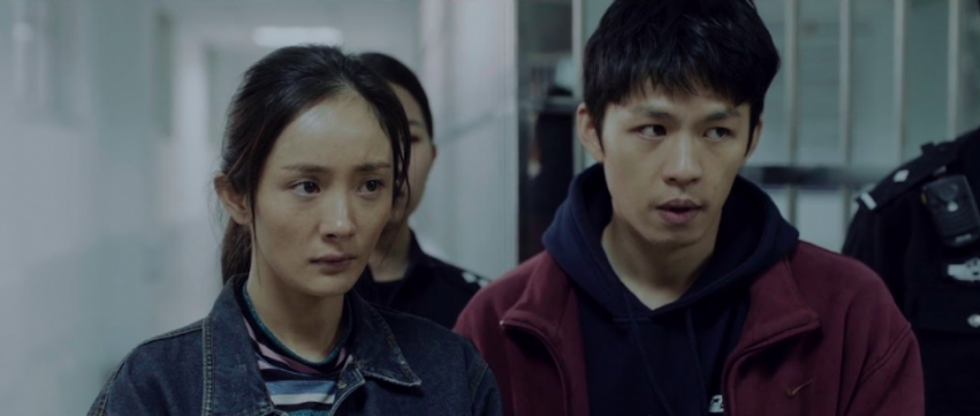5 Tips from Director Liu Jie on Exceeding as a Filmmaker
“I think it’s possible to ask too much about what effect a film might have."

Award-winning Chinese writer/director Liu Jie—known for his vérité explorations of social justice issues—premiered his latest cinematic baby, Baby, at TIFF 2018. The film has already amassed glowing reviews and is currently playing in San Sebastian, Spain, for its second festival at the end of September.
Baby is Chinese Neorealism with an edge. The native title of the film, Bao Bei Er, means “precious”—but the children in the film are anything but. Liu turns his lens on the Chinese working class with searing emotional intensity.
We follow Meng, a 19-year-old foster child who suffers from a congenital illness. She wants to support her ailing foster mother but faces discrimination from employers due to her disability. Her friends are even worse off: deaf-mutes who rely on disability pensions. When Meng finally finds work as a hospital janitor, she discovers a disabled infant abandoned by her parents. A reminder of her own infancy, the baby’s fate becomes an ethical bone of contention...and Meng doesn’t know how to let go.
No Film School was able to sit down with Liu to explore what makes him tick.
1. Trust the truth
The film’s subject matter came to Liu through a friend. The friend’s doctor had given him three days to decide whether or not his infant child should live. This took place back in 2009 and the story had been eating at Liu ever since.
It took him this long to translate the empathy he felt for his friend’s dilemma into a compelling story for a much wider public. He didn’t want to milk his friend’s unfortunate experience but rather express what had moved him with as much veracity as he could achieve.
He let research be his guide. “I wanted to borrow the technique of making a documentary film,” Liu explained, “so I interviewed a lot of people, trying to get to know a subject matter I knew very little about. I was determined to be as real and naturalistic as possible, to honor the stories that inspired the film.”
Baby is indeed naturalistic, even mesmerizing in its understatement. The film is almost completely devoid of a soundtrack, save an elegiac sequence near the end.
The film is completely free of showy aesthetics. Instead, it is objective in its artistry: polished and never jarring. Where another director might have championed Baby’s subject matter by charging it with melodrama, Liu lets his characters do the talking. The lion’s share of the cinematography follows Meng or others in close-up; as a result, we remain in their headspace and see the world through their eyes.
This was a skill Liu picked up during his original career as a cinematographer. While shooting for other directors, he recalled, “even then I was not as interested in the actual technique as much as I was interested in the people and the content of their story.“ This was also when Liu realized that he had a unique point of view to offer. “Cinematography is all about creative expression. I found myself thinking, if I were directing this particular scene, I would have done it differently. As I shot more films, I started to learn more and more personal ways of expressing myself.”

2. Stay Objective and Inspire Questions
Liu is a study in contrasts. Clearly, he cares deeply about his characters and yet nothing is more important to his artistic process than objectivity. In order to honor his subjects, he is careful not to muddy his films with his own emotions. The culmination of this expression is Baby. “I began to develop my personal philosophy at a young age, when I first learned about films,” he reflected, “In particular, I was very inspired by Hou Hsiao-Hsien, and adapted my own style from his.”
Hou Hsiao-Hsien is a legendary Taiwanese auteur known for A City of Sadness (1989), Flowers of Shanghai (1998), and The Assassin (2015), among many others. He is also Baby’s Executive Producer. ‘Mr. Hou’—as Liu respectfully calls him—has been an important mentor. “I learned from Mr. Hou that a filmmaker should portray the real world while maintaining objectivity. That’s what I believe will make a film have longevity.”
Like Hou, Liu is no stranger to gritty legal dramas. In some ways, his previous films Courthouse on Horseback (2006) and Judge (2009) are thematic precedents to Baby. Liu sees each film as new territory. Although his films explore ethical questions, he avoids pushing an agenda or taking a stance. Instead, he wants his audience to search for answers.
Liu offered a slow smile: “Although my films quite often deal with the legal system, I’m not looking to express any particular political viewpoint. Rather, I want my films to express confusion.”
Liu’s agendas are supremely human. His films are a conversation, communicated through lenses, adding layers to an unfamiliar world where (if we’re willing to pay attention) we can relate to one another, despite our differences. In the case of Baby, Liu wanted to observe marginalized characters who don’t normally receive the empathy they deserve. As he put it, “You and I, we don’t know the emotional world of these disabled foster kids—how could we? I want this film to get people to try to understand.”
For Liu, it’s all about feeling and yet he refuses to manipulate his audience. True feelings, he believes, are born of seeing a particular milieu portrayed exactly as it is. When asked what he hopes his film will accomplish, he frowned. “I think it’s possible to ask too much about what effect a film might have. For this particular film, I hope to expose people to which they have not considered before. I hope this inspires people to ask questions. That’s all.”
3. Give Your Actors Time to Transform
Central to the film’s power is the deeply affecting performance by Chinese A-lister Yang Mi, or, as she’s known back home, “Mini Yang.” When Yang appeared in Toronto for Baby’s premiere, hordes of Chinese attendees squealed with joy. While she’s certainly a crowd-pleaser, Yang is not typically known for serious drama. She was even awarded the Golden Broom for “Most Disappointing Actress” in Tiny Times, one of her roles in a mega-popular franchise. You’d never guess that watching Baby.
Kudos to Yang for stepping up, and kudos to Liu, for grounding the superstar. “She learned to be less of a famous actress by the end of our shoots,” Liu laughed. “She was able to sit on the curb in a busy street, and people wouldn’t even notice her. I’m very grateful she was able to do that.”
Liu admits that this required rigorous concentration on both of their parts. “I torture my actors spiritually,” Liu relayed nonchalantly,“If you want to transform a person into a different one, that’s what it requires. I didn’t want an actor, I didn’t want technique. I wanted Yang to just be her.”
It’s a two-way street. To understand his characters, Liu has to experience his own share of spiritual torment. It doesn’t end there; if the film delivers, the audience experiences their share of emotion as well.
What exactly is spiritual torment? Time in someone else’s shoes, as Liu describes it. “It’s not about talking someone into doing it. I think it takes time to let someone transform. I think a lot of stars are in the habit of protecting themselves. If you leave someone in a certain space long enough, eventually their real self will come out.”

4. Let it Breathe
Baby takes its time, but none of it feels like wasted space. The film resonates in part because of its remarkably minimalistic editing. Liu was careful to leave room for meditative moments that allow audience emotions to catch up to the onscreen drama.
In one scene, Meng visits the neglected baby’s father in the hospital, begging him to save his daughter’s life. When he refuses, she leaves the room to call the cops—but we stay in the room. We’re locked in with the negligent father, thoughts swirling in real-time, right up to the moment when the police walk in.
Liu’s modesty is also remarkable. “Obviously, the way you edit is very personal,” he clarified, “Why you choose to do a certain type of film to begin with is already very personal. For me, I just use editing to pace the narrative. The goal I always have in mind is to do whatever makes it more realistic. Let it breathe.”
"Follow your own thoughts, experiment with them. Do the things that feel right to you.”
5. Do What Feels Right
At the end of the day, Liu knows his approach may not be for everyone, but his advice still rings true.
“Filmmaking is all about where you focus your attention,” he declared. “Hollywood movies have their own particular atmosphere. But if you’re an independent filmmaker, if you’re interested in storytelling, if you want to create your own style, I advise self-reflection.”
Liu’s eyes twinkled. “Follow your own thoughts, experiment with them. Do the things that feel right to you.” He vibrated his hands next to his head, as if stirring a soup of mental energy, then laughed. “Times have changed a great deal since I started. Back then, you needed certain criteria to get your foot in the door. Nowadays, you can make a film with this”—Liu held up his cellphone with a grin—“so the process of starting your career is even easier. In turn, it’s more important than ever to be thoughtful, to follow your best instincts. That’s your responsibility as a filmmaker.”












